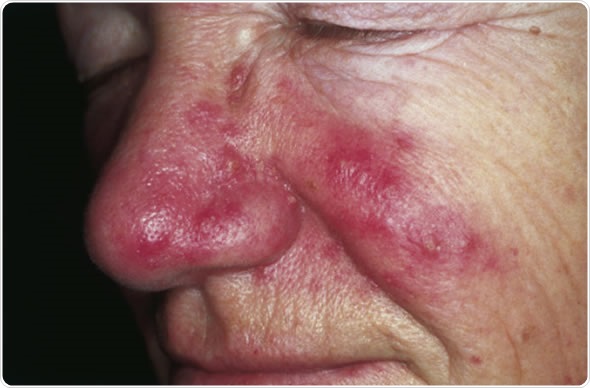Launching 1st March 2023. Also check out: https://www.thailandmedical.news/
Rosacea is typically characterized by a redness and discoloration across the face, accompanied by persistent red spots and the appearance of prominent blood vessels. Over time, the skin may thicken and enlarge and eventually cause facial deformity.

The cause of rosacea is not yet clear but there are several hypotheses regarding the mechanisms of pathology which include:
Some research suggests that this bacteria produces a protein called bradykinin that can cause blood vessels to dilate, giving rise to rosacea symptoms.
Rosacea is typically characterized by flushing, redness and prominent blood vessels across the face. Sun exposure can lead to dilation of blood vessels and the release of inflammatory mediators that cause this redness. Sun can also damage the elasticity of the skin by degrading collagen.
Although no particular gene that causes rosacea has yet been identified, the condition has been known to run in families, suggesting it may be an inherited condition.
Demodex folliculorum is a type of tiny mite found on human skin that has been implicated as a cause of rosacea. They have been observed in higher numbers on the affected skin of rosacea patients than on healthy people's skin
Caffeine-containing drinks, alcohol, spicy food, steroid creams and vitamin B supplements have been implicated in the causation of rosacea.
There are several triggers that may worsen rosacea symptoms and these include: